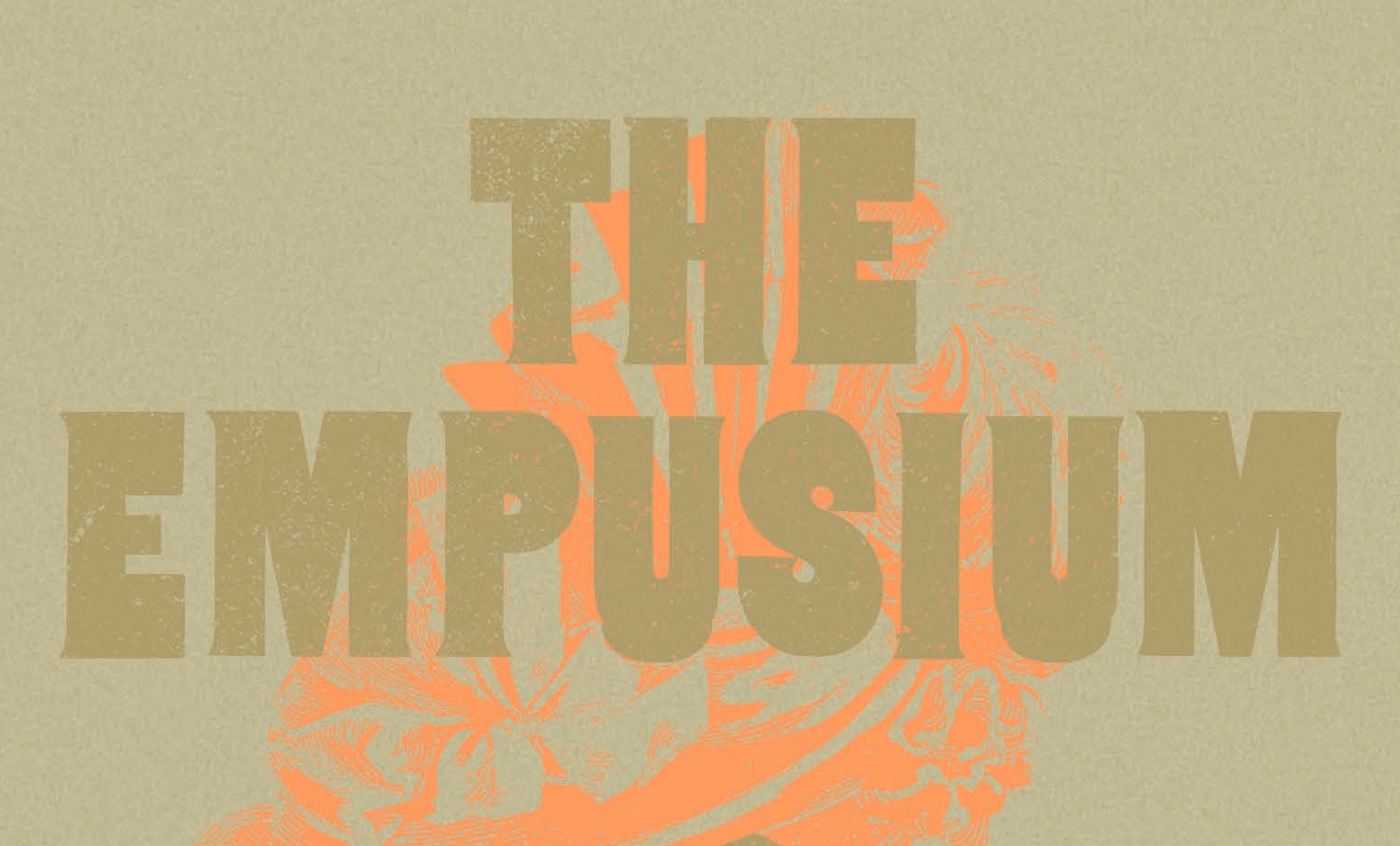Reading Lists
20 Novels In Translation You Need to Read this Winter and Spring
Books from across the world to add to your TBR

Translated literature is no longer the forgotten, othered cousin of the Anglo-American literary scene. At Electric Literature, we have long been enamored by international frontiers, the global writers who write in their native (or acquired) tongues, and the translators who coax each word into English.
This year’s crop of forthcoming translations is bountiful. To cease endless (and pleasurable) reading and consideration, we narrowed our list to 20 and limited it to titles coming between January and April. In this list, Spanish, Swedish, Ukrainian and other languages feature.
The novels relate stories that cross time and place, from a reimagining of the conquest of Mexico, the friendships and connections between immigrant women in different European countries, and two Ukrainians separated by time but united in their hypochondria, to an Italian Instagram influencer getting influenced, a very odd uncle in France, a transwoman growing up in 1980s Madrid, rarely-old histories of Suriname, and many more fictional worlds.
You Dreamed of Empires by Álvaro Enrigue, translated by Natasha Wimmer (Jan. 9)
On the eve of the conquest of Mexico, Sudden Death author Álvaro Enrique trusts us into Hernán Cortés’ entourage, and the character of Jazmín Caldera, a captain who struggles with doubt as the expedition arrives in Tenochtitlan. As he takes in the insides and intricacies of Moctezuma’s palace, Caldera wonders if they will even remain alive. And the author wonders: What if the conquest didn’t succeed? This question follows the novel, translated by Natasha Wimmer, radiantly and with great pace as the expedition gets mired in court intrigues and customs. A wonderful reimagining of the defining episode of Mexico’s existence and a delightful evocation of the capital as it might have been then. Enrigue’s note to Wimmer about Nahuatl words is intriguing and charming; and a reminder of how many languages—and translators—were involved in the moment of conquest.
Ǣdnan: An Epic by Linnea Axelsson, translated by Saskia Vogel (Jan. 9)
Ǣdnan, Linnea Axelsson’s astonishing century-spanning debut translated by Saskia Vogel, opens in 1913 as the Sámi face the destructive, assimilating forces of Scandinavization. Ristin loses one of her sons tragically, as a border is drawn up between Sweden and Finland. The family is soon subjected to the humiliations of racist medical research, and forced to abandon their nomadic life. Three decades later, Ristin’s apartment is inhabited by Lise, who was forced into a residential school in the 1950s. In the 2010s, her daughter “Sandra who has/gone and married a reindeer keeper now” is teaching herself and her family to speak Sámi, and fighting for land rights in the Girjas trial. Truly an epic, the novel offers multitudes on Sámi history, culture, and resistance, in its slim verses. Most devastating of them, however, are the multiple characters’ meditations on their lost language, perhaps since the novel itself was written in Swedish by Axelsson, who is of Sami-Swedish descent. Ristin’s husband Ber-Joná notes:
“The ruling language
Drizzled over us
Swedish words
Impossible to pronounce
–
They penetrated our clothes
Coated our skin”
The Singularity by Balsam Karam, translated by Saskia Vogel (Jan. 17)
The Singularity is Swedish-Kurdish writer Balsam Karam’s first work in English via Saskia Vogel’s translation. The gauzy, poetic novel features two mothers in an unnamed coastal town. The first, a refugee mother is searching for The Missing One, her daughter who disappears while working in the town’s touristy corniche. When she gives up, she decides to throw herself into the sea, leaving behind her remaining children and her own mother. Her suicide is witnessed by a second pregnant mother (in the second person “you” in Karam’s lyrical text), who is on a business trip in the town. When she returns home, she finds that her baby in utero has no heartbeat but refuses induction. Karam then moves into prose-poetry and fragments about the second mother’s own childhood in a war-torn country and her family’s experiences of racism in Sweden. Inventive and devastating.
Forgottenness by Tanja Maljartschuk, translated by Zenia Tompkins (Jan. 23)
In Tanja Maljartschuk’s Forgottenness, two characters are separated by about a century: a young writer who struggles with OCD and agoraphobia, and a real-life Polish-born Ukrainian patriot, Viacheslav Lypynski. They are connected by hypochondria. The novel weaves between the narrator, her multiple health afflictions, and her family’s history, and her imagination of Viacheslav’s existence through the end of the First World War. Despite its heavy shadows, Forgottenness is often hilarious in its wryness in the bumbling and utterly absorbing Viacheslav’s attempts at living and fighting for the Ukrainian state. His courtship of his petulant Polish wife who does not agree with his patriotism, for example, offers many moments of humor. And as Viacheslav’s mother notes: “Fools also evoke pride, sometimes even more so.”
Confrontations by Simone Atangana Bekono, translated by Suzanne Heukensfeldt Jansen (Jan. 30)
In her debut novel, Dutch poet Simone Atangana Bekono introduces Salomé, a sixteen-year-old of Dutch and Cameroonian parentage, in two raw, jarring stories set apart in time. In the first, Salomé remembers her classmates throwing coins at a Black man at the asylum seekers center across from the school. They taunted him to pick up the coins. Her eyes met the man’s. She hoped he would not pick them up. He doesn’t. In the next scene, we see Salomé entering a prison, where she refuses attempts at therapy and shows no remorse for the violent crime she’s committed. The revelation of what her crime is held back by Bekono while she has the very bookish Salomé considering Camus’ The Stranger and Greek mythology, and imagining what the “other Salomé” is doing (“…sets up a punk band in Paris. She doesn’t do memories. She dwells in light.”) In flashback, there is a childhood trip to Cameroon, the intriguing Aunt Céleste who tells Salomé that she’s special, her father’s firing and illness, and the racism of her village in the Netherlands. Propulsive tautness till the end.
The Other Profile by Irene Graziosi, translated by Lucy Rand (Feb. 6)
In Irene Graziosi’s The Other Profile translated from Italian by Lucy Rand, Maia, a disenchanted 26-year-old waitress in a failing relationship, lands a role as an image consultant to 18-year-old influencer Gloria. Graziosi, a journalist and an Italian YouTube personality, takes into the fluffy highs and dark underbellies of social media influencing via Maia, who hadn’t used an emoji prior to meeting Gloria. A brand meeting with influencers that fetishes “diversity” is lampooned to perfection. From Maia’s initial disdain for Gloria, the novel tracks their relationship against the exploitative wilderness of the algorithm and builds to a culmination of multiple reckless, explosive episodes. A racy Gen. Z take on female friendships bearing the influences of My Brilliant Friend.
Antiquity by Hanna Johansson, translated by Kira Josefsson (Feb. 6)
Translated from Swedish by Kira Josefsson, Hanna Johansson’s debut novel Antiquity follows an unnamed 30-something woman, an isolated character who “started getting used to the disappointment of being left behind, left out” who joins artist Helena and her daughter Olga on vacation in Greece. Johansson distills the threesome’s shadowy dynamics in raw vignettes. At first, the narrator, beholden to Helena, is jealous of Olga: “Olga, a name for the child of an artist. A name for a princess, a violent saint. A name for a little cunt.” Soon, the narrator’s obsession with Helena, an artist she had met when she conducted an interview, transfers to Olga. Obsessively observant and cuttingly internal, the narrator’s meditations on loneliness are crisp, mini poems: “The days came with a new sort of loneliness, the loneliness of being with others, the loneliness of being the other: across from Olga at the table, the coffee, the flies.”
Sisters in Arms by Shida Bazyar, translated by Ruth Martin (Feb. 6)
Shida Bazyar’s first novel to be translated from German by Ruth Martin centers on the friendship of three immigrant women, Hani, Kasih, and Saya, now in their 20s but friends since childhood. From its explosive beginning of a news report about Saya assaulting a man while shouting “Allahu Akbar” and being accused of arson, the novel charts the women’s friendship and experiences with racism on their public housing estate from the perspective of Kasih. A provocative and disconcerting portrait of what it means to be an immigrant of color in Germany.
A Woman Of Pleasure by Kiyoko Murata, translated by Juliet Winters Carpenter (Feb. 27)
Set in 1903, A Woman of Pleasure begins with the sale of fifteen-year-old Ichi to an exclusive brothel, follows her education under the mentorship of the top courtesan or oiran, Shinonome, and ultimately to a strike by the courtesans. Using the frame of incidents from Meiji-era Japan, Murata takes us into brothel life (accounting, calligraphy lessons, bikini depilation using tweezers) via multiple character’s perspectives, including the brother’s owner who rates Ichi as the highest in his hierachy of workers, “exceptional.” The novel especially enchants with its nods to writing (via writing teacher, Tetsuko’s instruction) and Ichi’s journal pages:
May 18 Aoi Ichi
The owner talked to me.
Hes wrong.
I wont die in my bed
III die on the waves.
The Villain’s Dance by Fiston Mwanza Mujila, translated by Roland Glasser (Feb. 20)
Congolese writer of Tram 83, longlisted for the International Booker in 2016, Fiston Mwanza Mujila returns to English readers with this translation by Roland Glasser of late 1990s in Zaire and Angola. In the last days of Mobutu’s reign Sanza wanders the streets of Lubumbashi with a group of street kids until the character of Monsieur Guiliaume enters with an escape. Across the border in Angola, a civil war rages and Molakisi seeks his fortune in a hunt for diamonds, while an Austrian writer Franz in search of material, chronicles the stories of the seer Tshiamuena, “Madonna of the Cafunfo Mines.” A novel that pulses with music (and dance of the title) and wit.
About Uncle by Rebecca Gisler, translated by Jordan Stump (Feb. 24)
Rebecca Gisler’s debut About Uncle begins with a paragraph-long sentence “One night I woke up convinced that Uncle had escaped through the hole in the toilet, and when I opened the door I found that Uncle had indeed escaped through the hole in the toilet…” We soon learn that Uncle, a veteran, is prone to curious habits like disappearing down the plumbing, in addition to fighting moles and peeing into bottles. The unnamed narrator and her brother, have moved in with Uncle in an isolated town, and then the pandemic hits, drawing them further to each other. While the novel is short at just over 160 pages, Gisler is a maximalist with her wild, thrilling sentences. In her description of Uncle’s oceanfront house, Gisler writers: “Even with the ocean so close, Uncle never goes swimming, he tells us the locals never swim, swimming’s only for tourists, and anyway the water’s full of liquid manure these days, full of pig dung and blue-green algae, none of which seems to bother the people who still swim in it, the tourists in question, who still fish in the mudflats where there used to be beautiful red crabs and spider crabs and where there are now only anonymous little crustaceans, translucent, as if worn down by the oily backwash, weary from picking their way through the wads of peat.”
Thirst by Marina Yuszczuk, translated by Heather Cleary (March 5)
In Thirst, the U.S. debut of one of Argentina’s leading contemporary lit figures, Marina Yuszczuk, we are introduced to two women spared by centuries in Buenos Aires. The first unnamed character, a vampire who escapes Europe arrives in the Argentine capital, and has to navigate her desire for blood, human connection, and discretion. In the contemporary moment, the second character lives in the city and grapples with her ailing mother. When the two meet in a cemetery, the novel takes a truly irrepressible turn. Desire, female agency, and love get examined under a gothic lens. Winner of the prestigious Sara Gallardo prize for women writers in its original language, the novel rendered into English by Heather Cleary should be your 2024 vampire novel pick.
Change by Édouard Louis, translated by John Lambert (March 5)
Édouard Louis’s Change is obsessed with escape, a repeated theme of the French literary sensation’s autobiographical novels (The End of Eddy). In Change, translated by John Lambert, he moves from his provincial working-class background to school in Amiens and then university in Paris, and leaving “Eddy” behind for a classier name, and a new life as someone else. Brutal and beautiful throughout with photographs that illustrate the narrator’s wretched origins and transformation. An example of the narrator reflecting on his younger self: “I don’t know how it’s possible to have such precise and somehow also adult and anachronistic thoughts as a child, but I remember that I wanted to leave the village and become rich, powerful and famous because I thought the power I’d gain through wealth and fame would be my revenge against you and the world that had rejected me. I’d be able to look at you and everyone else I’d known in the first part of my life, and say Look where I am now. You insulted me but today I’m more powerful than you, you were wrong to despise me and call me weak and now you’re going to pay for your mistakes. You’re going to pay for not loving me. I wanted to succeed out of revenge.”
Reinbou by Pedro Cabiya, translated by Jessica Powell (March 12)
“My story begins with a gringo. Yes, with a gringo. That’s as glamorous as it’s going to get.” With that fiery start, the Puerto Rico-born Pedro Cabiya begins his sweeping historical novel of the Dominican Republic’s civil war, known as the April Revolution, and the U.S. invasion of the country. Translated from the Spanish by Jessica Powell, the novel has the ten-year-old Ángel searching for the truth behind his father’s murder, and moves between 1965 and 1976, featuring a cast of unforgettable characters, rendered in energetic prose. Reinbou, part of the country’s contemporary literary canon, was made into a 2017 film. Essential for an intimate understanding of the history of the DR and the US intervention.
The Understory by Saneh Sangsuk, translated by Mui Poopoksakul (March 13)
Utterly lush from its delightful epilogue from the Buddhist text Rasavahini, “Literature has nine flavors: Sringaram the taste of which is love…” The Understory follows Luang Paw Tien, a ninety-three-year-old monk who has transgressive (for his vocation) literary ambitions and spends his time regaling the village children with stories of his wanderings in India and Burma and of life in their paddy farming village when it was still a jungle. With elegant observations and gorgeous winding sentences, Sangsuk, one of contemporary Thai literature’s stars, delivers a gorgeous portrait of nature and change via Mui Poopoksakul’s translation.
Off-White by Astrid Roemer, translated by David McKay and Lucy Scott (April 9)
Recently minted as a 2022 National Book Award finalist for On a Woman’s Madness, Astrid Roemer returns to English readers with this novel of family, race, diaspora and Suriname in the late 1960s translated by David McKay and Lucy Scott. At its heart is the Vanta family and aging matriarch who reflects back on her life. The family’s narratives are laced with the themes of conservative sexual mores, male violence, Dutch colonialism, and ideas of whiteness. A portrait of a family in Suriname and the Netherlands from the prolific author who took a two decade break from publishing before this novel.
Tenderloin by Joy Sorman, translated by Lara Vergnaud (April 16)
Pim, the protagonist of Tenderloin by Joy Sorman, translated from the French by Lara Vergnaud, cries a lot in an involuntary fashion. He is also apprenticing as a butcher. In documentary-style present tense, Sorman takes us sensually into the sights (viscera and guts) and sounds (pigs squealing) and smells (earthy and stomach-turning) of Pim’s world, and into all that goes into bringing meat to our dinner plates. Trying to master butchery, Pim soon unravels himself. Surreal and oddly entertaining in its macabre details, Tenderloin will certainly provoke thoughts on the ethics of meat, even for the most committed carnivores.
Bad Habit by Alana S. Portero, translated by Mara Faye Lethem (April 23)
In Bad Habit, a trans woman comes of age in Madrid in the 1980s and 1990s amid the city’s heroin crisis, political rallies, and its nightlife. This first novel from Spanish writer, activist, and medieval historian tracks the protagonist’s journey of self, alongside a resplendent cast of characters such as Jay, her first love, and the Caramel, who, Portero writes, could be “feisty when she wanted to, a vengeful saint capable of conjuring ghosts who brought humiliation and the evil eye to the very tip of her tongue. That wasn’t incompatible with having the biggest heart in the world. With that surly gaze of hers, somewhat similar at times to María the Wig’s, she could detect tormented souls, sadness, melancholy like a divining rod for loneliness.” Vibrant in its joys, rawness, and violence of trans lives, Portero has a fan in Pedro Almodóvar, who says you should read it ASAP.
Butter: Novel of Food and Murder by Asako Yuzuki, translated by Polly Barton (April 24)
During the 2011 butter shortage in Japan, a journalist Rika Machida is assigned to cover Manako Kajii, a serial killer, who lured in her victims with the promise of high-end cooking classes. At the Detention House where Kajii is being held, Rika tries to get her to talk but has no luck until she asks the woman for a recipe for beef stew recipe sets off a conversation between the two women. Food, patriarchy, and the body feature, as does some engaging prose about food, and in particular, butter. On the taste of a mochi, Yuzuki writes: “The hot butter fused the sugar and soy sauce together, clinging to the sweet, soft, shapeless mass in her mouth, swimming around its outside as though to ascertain its contours. The grease of the butter melded with the grit of the sugar and the pungent soy sauce. By the time she’d finished chewing, the roots of her teeth were trembling pleasurably.”
Divided Island by Daniela Tarazona, translated by Lizzie Davis and Kevin Gerry Dunn (April 23)
In this elegant novel by Mexico City-born writer Daniela Tarazona, a woman receives a diagnosis of cerebral dysrhythmia, a neurological disorder, which results in her splitting into two different women. One decides to travel to an island to commit suicide, while the other stays behind. Narrated in the second person, the novel’s fragments poetically move towards a shifting portrait of the disorder and how it impacts perception of time and the world. Translated by Lizzie Davis and Kevin Gerry Dunn, the novel, which won the prestigious Sor Juana Inés de la Cruz prize for novels by women in Spanish, is a potentially speed read that you will be turning over in your mind repeatedly and long after the last page.








